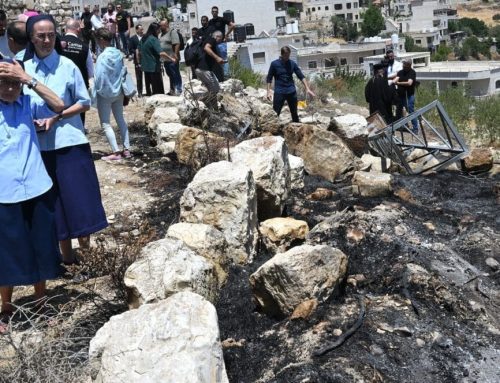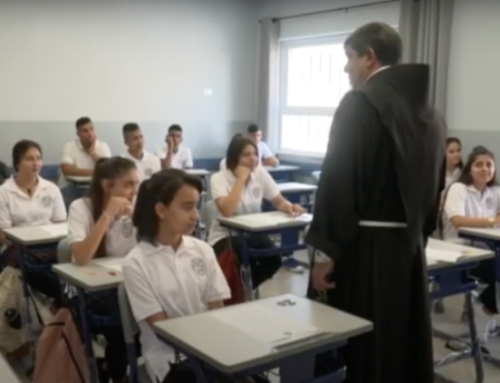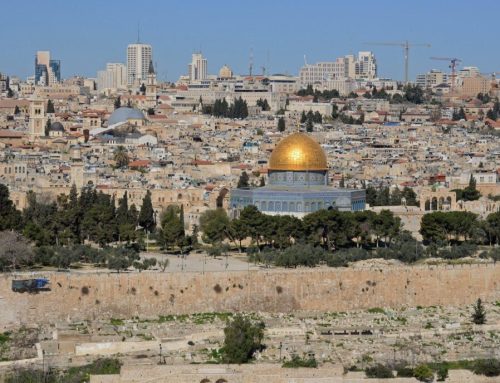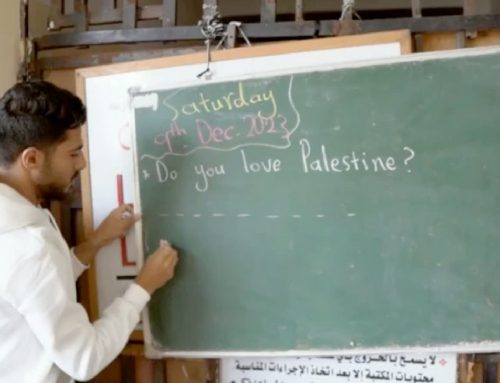Without water, one cannot survive or stay alive. It’s a source of life for humans, animals, and agriculture-a human right. But in Palestine, most of the sources of water are controlled and exploited by Israeli government and companies, even as Palestine already suffers from a scarcity of natural water resources like rivers and fresh lakes.
Without access to water sources, communities are forced to displace to another place where water is available; therefore Israeli government and settlers use water access as a tactic to displace Palestinians.
The Israeli occupation limits water access for Palestinians in several different ways. For example, Israeli authorities block water supply to Palestinian municipalities and restrict the use of agricultural artisan wells. Palestinians must apply for permission to dig new wells, and Isreal will almost always deny these licences while at the same time allowing illegal Israeli settlements in the same area to drill agricultural wells without restrictions or conditions.
The Israeli occupation routinely destroys existing Palestinian water facilities such as ponds, basins, and wells, especially those located in regions classified as Area C, under the pretext of Palestinians not having a permit to build these facilities.
There is a stark difference in water consumption rates between Palestinians and Israelis, where the per capita consumption rate ranges from 60-100 litres for Palestinians compared to 350 litres for Israelis.
The Israeli Water Company Mekorot withdraws large quantities from the aquifer of the West Bank for free and then sells this water again to the Palestinian municipalities of the West Bank.
An acute shortage of water often occurs among the Palestinians, especially in the summer, which prompts citizens to buy water from water tankers, and this increases the burdens of life and economic costs, especially since most of them are from marginalized and vulnerable areas.
Months ago, the Israeli companies that control the artisan wells reduced the share of water for Hebron and Bethlehem even more, which increased the suffering of citizens, especially in the summer. One of the shopkeepers in Hebron’s old city lamented the water scarcity in his shop, forcing him to bring water bottles from his house, from one of the mosques, or from the neighbours. “This is a clear policy to displace us from the area and the old city,” he said.
The construction of the apartheid wall has led to the seizure of many water wells and the deprivation of an important source of groundwater for Palestinians. By cutting off water from the Palestinians and giving it to the Israelis, the occupation monopolizes water sources which can then be used as a tool for pressure, extortion and collective punishment.
There are many artisan wells and water sources in the West Bank, enough that the Israeli government, companies and settlers do not need them all. But to prevent Palestinians from accessing these water sources, companies and settlers pollute the environment, throwing Israeli wastewater and sewage into water sources and dumping chemical waste that pollutes groundwater, consequently exacerbating the scarcity of water for Palestinians.
CPT Palestine visited one of the families whose large water well was recently demolished by Israeli occupation forces not far from the Kiryat Arba settlement in Hebron.
The children, the father, and some women gathered around the demolished well, as well as some of the neighbours to advocate for them. The father was sobbing as he pointed out that more than 30 people in the area use the well for drinking, cooking, and home farming. “What will happen to us after this? What will we do with the land we cultivate and the sheep? What will we do?” He was looking at the nearby settlement. There are modern houses and green trees throughout the settlement. “Is it fair that we are deprived of water on our land while the settlers enjoy water?” he asked.
It was a difficult and painful moment. Children stood around the destroyed well, throwing small stones into the well without understanding what was taking place around them. Women cried and prayed to God to give them justice for this oppression. The father sat on a small rock with his hands on his head and cried.
This is only one of the many Palestinian families who are subjected to oppression, injustice, and persecution under Israeli occupation on their own land. A Palestinian has no right to build on his land, even a water well, without a permit from the Israeli authorities. In areas classified as C, obtaining a permit to build anything is impossible. Everything built in these areas was built before the Oslo agreement; anything built after has been or will be demolished by the occupation, even if it is a small wall around a piece of land or a house. Meanwhile, the settler is given the right to occupy, build, break, demolish and destroy houses, crops, and trees under the protection of the occupation army.
In occupied Palestine, settlers are entitled to what the owners of the land are not, even the life source of water.
By: Christian Peacemaker Teams, B’Tselem






